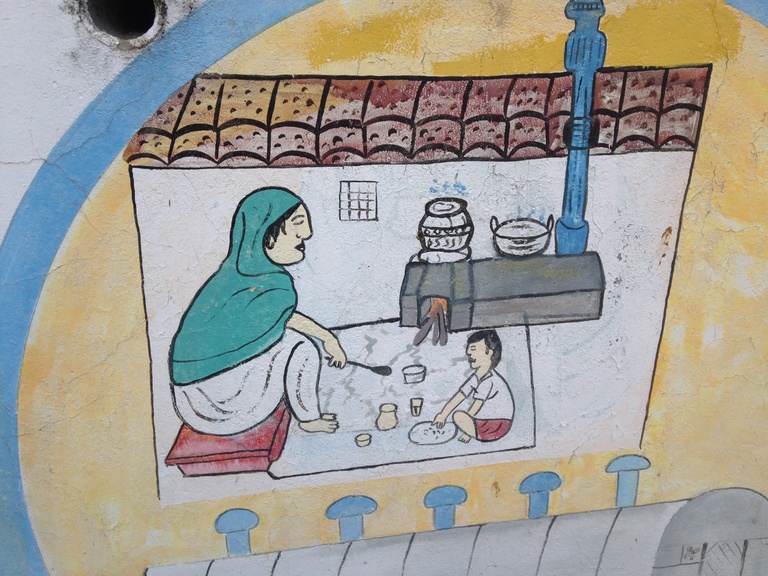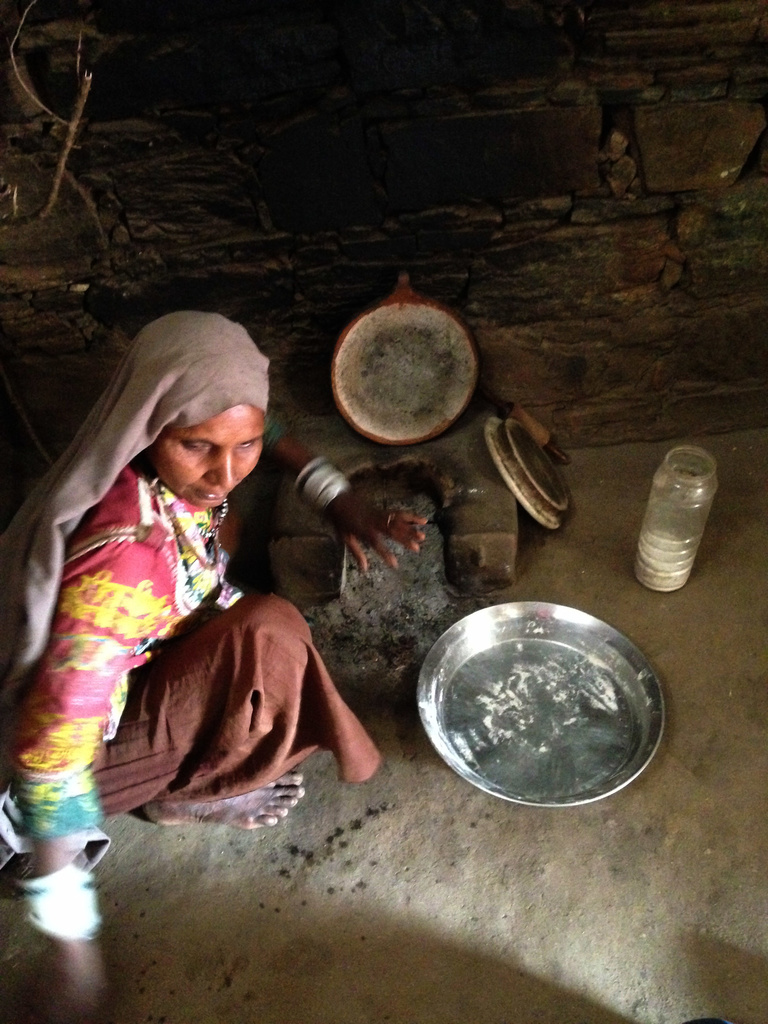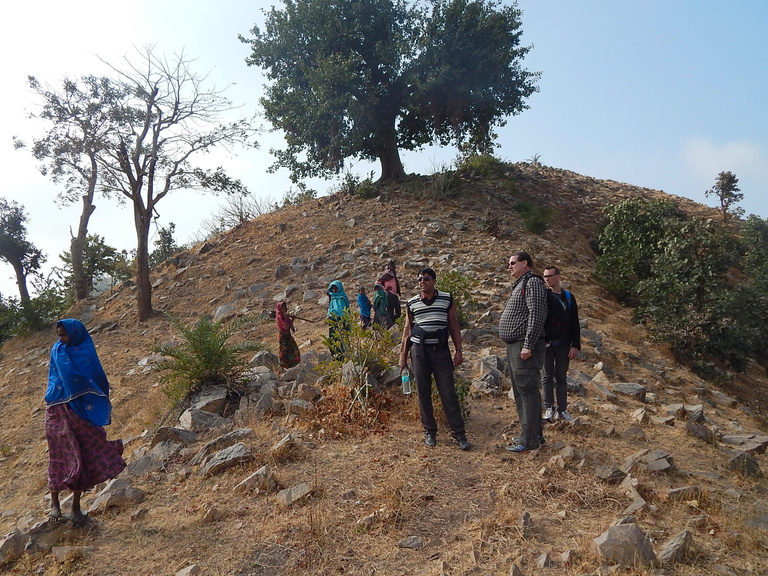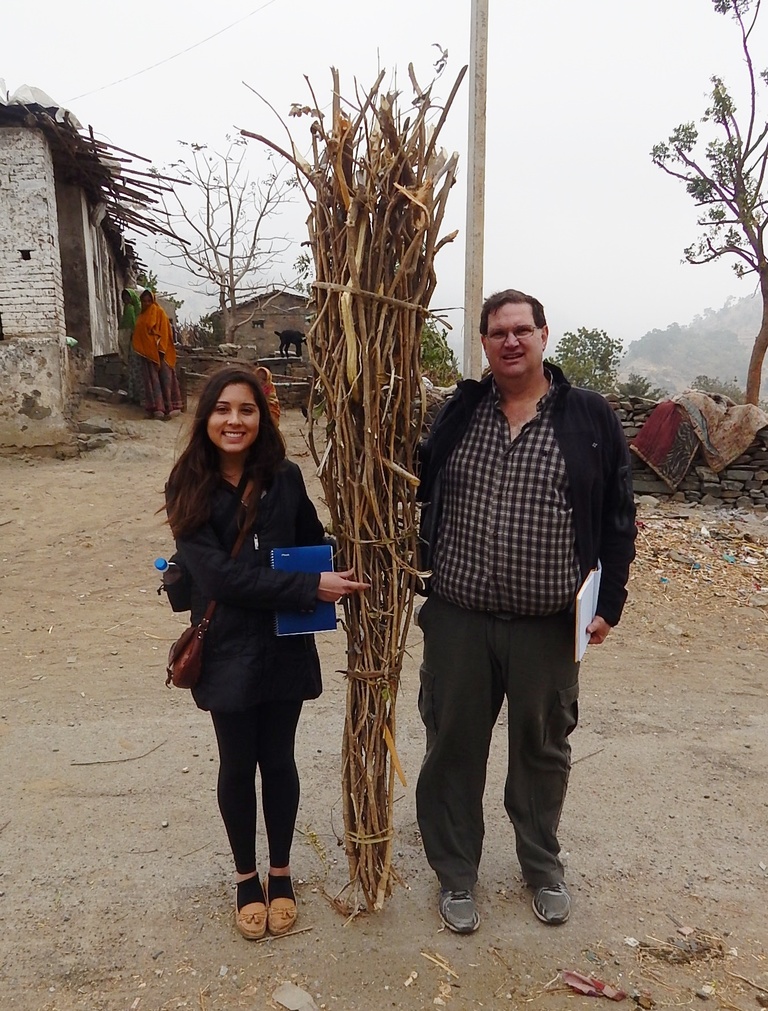Fulbright-Hays grant to facilitate an interdisciplinary investigation of Indian chulhas by UI faculty
By Lauren Katalinich
In 2011, H.S. Udaykumar, a UI engineering professor, approached UI anthropology and gender studies professor Meena Khandelwal with a conundrum.
For the past few years, Udaykumar had been working with his students to develop and install solar-powered cook-stoves in rural areas of Rajasthan, India, as part of the UI’s popular India Winterim study abroad program. The solar stoves were designed to provide local village women with an alternative to the traditional wood-fueled chulhas which contribute to critical issues of air pollution and deforestation in the area.
The problem? None of the women seemed to be using them.

A drawing of a chulha, a traditional cooking instrument that has been found to contribute to critical issues of air pollution and deforestation in India.
A true anthropologist, Khandelwal encouraged Udaykumar to consider the issue from the local woman’s perspective. Did the chulha perhaps represent more than just a cooking instrument? What was the process of wood collection like for the women?
From one ten-minute conversation between a mechanical engineer and a feminist anthropologist, a strong and interdisciplinary collaboration emerged. Khandelwal and Udaykumar began meeting regularly to discuss the topic and soon invited other faculty members from environmental science, anthropology (Matthew Hill), geography (Marc Linderman), history (Paul Greenough), and urban planning (Jerry Anthony) to contribute their perspectives.

A local woman at her chulha
India remains a key site for efforts to design and diffuse ‘efficient’ and ‘smokeless’ cook-stoves and yet countless other groups have faced similar challenges in facilitating their adoption by local communities. Over the past several years, this interdisciplinary group of faculty has continued to develop, sparking various research projects on the subject in the context of their distinct academic disciplines.
Soon the group will take their investigation one step further- to India.
This summer, Meena Khandelwal was awarded $83,075 by the Fulbright-Hays Group Projects Abroad (GPA) Program in the U.S. Department of Education to lead UI students and faculty, including members of this working group, to India in a unique seminar entitled “Promise and Pitfalls of Development Efforts in Rajasthan, India.”
The Fulbright-Hays Group Projects Abroad competition provides grants to support overseas projects in training, research, and curriculum development in modern foreign languages and area studies for teachers, students, and faculty engaged in a common endeavor. Projects must focus on the humanities, social sciences, and languages, and must take place in a world region other than Canada or Western Europe.
Though federal funds will cover over 90% of the travel and overseas costs of the seminar, the University of Iowa’s International Programs office is providing generous support to defray the remaining expenses. In addition, the Iowa Center for Research by Undergraduates (ICRU) will be granting student research stipends for two undergraduate students.

UI faculty and students go with local women to observe the process of wood collection
Participants of this seminar will examine these cook-stoves in all their dimensions: what has motivated efforts to improve them, what interventions have occurred, and why have these efforts tended to fail. They will explore the frontier of southern Rajasthan, where deforestation is widespread, in order to better understand the complex culture-technology-environment dynamics in the area. At the same time, the seminar will help strengthen the UI working group’s partnership with two non-profit organizations, Climate Healers, and the Foundation for Ecological Security, and with faculty at Maharana Pratap University in Udaipur, India.

UI student Julia Julstrom-Agoyo and UI professor Matthew Hill participate in wood collection
After his first conversation with Khandelwal, Udaykumar and his students made their next trip to India with an expanded perspective.
Through conversations and observations of local women, they discovered that chulhas were a centerpiece of daily life for villagers in Rajasthan. The process of wood collection to fuel the stoves was arduous and laborious but also, at the same time, created a social space of enjoyment and solidarity for local women. They realized that to replace this routine with solar cookers, no matter how well engineered, would require an enormous cultural shift that they hadn’t bargained for.
The chulha question highlights the necessity for liberal arts thinking in conjunction with economic, environmental, and engineering ideas. Indeed, the key to designing truly sustainable solutions often lies in looking at a problem from many angles and it is the kind of collaborative thought facilitated by this seminar that Khandelwal hopes participants will go on to implement in their future research and teach students in their classrooms back home.
For more information on applying for a Fulbright-Hays Group Projects Abroad, visit the funding section of the International Programs website.